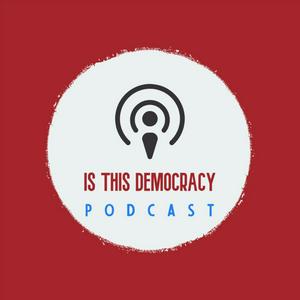40. The Precarious State of the Union
A little over six weeks since Trump returned to the White House – and the assault on democratic self-government and the modern state is not slowing down. We start with Trump’s speech before a joint session of Congress. On the one hand, he didn’t say anything he hasn’t said many times before. But on the other, the whole spectacle revealed so much about Trumpism as a political project – and about a Republican Party that is entirely defined by its devotion to it. Similarly, the Democratic (non-)response offered a window into America’s nominal opposition party: Split between those who still cling to politics-as-usual, dreams of bipartisan “unity,” and impotent accommodation – and those who understand the emergency we face. We then talk about the Supreme Court intervening this week, siding against the Trumpist regime’s egregious attempt to freeze all foreign aid funding and simply not pay the government’s bills. The good news: The Court narrowly held that the rule of law and the constitutional order still somewhat matter. The bad news: This should not have been close at all, and yet it was. And, crucially, we must resist the temptation to legitimize John Robert’s idea of judicial supremacy – even when he occasionally tells the most extreme rightwing forces to knock it off. The Roberts Court is the spearhead of the reactionary mobilization against modern democracy. Finally, One Big Thing we have been thinking about lately: Lily brings up the pushback Republicans have been getting from the base in town halls around the country. Is a reverse-Tea Party a possibility? Thomas has been asked the same question over and over again: Don’t the Trumpists understand how much they are weakening America at home and abroad? The most plausible answer: What they are doing to America is not an accident or an unintended consequence. They really mean it. Show notes: ‘Trump’s 2025 joint session address, fact checked and annotated,’ CNN, March 5, 2025 https://www.cnn.com/interactive/2025/03/politics/transcript-speech-trump-congress-annotated-dg/ The Exploding Heads, ‘Historians Will Forever Remember When We Held Up Very Small Signs,’ https://www.youtube.com/watch?v=M5ZbiR0003Q Chris Geidner, ‘The Supreme Court, barely, upholds our three-branch system of government,’ Law Dork, March 5, 2025 https://www.lawdork.com/p/supreme-court-usaid-payments-orderFollow LilyFollow ThomasFollow the podcast on social mediaRead Thomas’ weekly newsletter Democracy Americana

